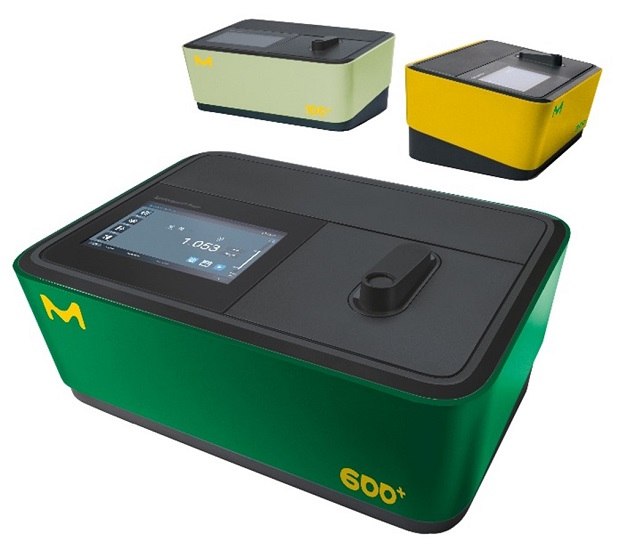Photometric Determination of Nitrate in Compost with Nitrospectral® Reagent After Extraction with a Calcium Chloride Solution
Abstract
This protocol outlines the photometric determination of nitrate levels in compost using Spectroquant® test kits. Following an extraction of nitrate ions with a calcium chloride solution, the procedure utilizes a spectrophotometer to measure the nitrate content, ensuring precise results.
Section Overview:

Spectroquant® spectrophotometers - Prove 100 plus, Prove 300 plus, & Prove 600 plus
Introduction
Nitrates are nitrogen-based salts with the anion NO3-, and an important class of primary nitrogen source for a plant’s growth. They are converted to proteins, the building blocks of life, in the plants as soon as they are absorbed by the root system1. While soil is a provider of nitrates for plants, research suggests that composts used for plant growth are also a rich source of nitrates. Nitrification, the process of nitrates synthesis from ammonia by oxidation occurs during composting2. However, when the concentration of nitrates is excessive in compost, it gets leached into soil and groundwater, thereby spiking the nitrate to toxic levels in them. This process is called nitrate-leaching3. It is therefore important to analyze the precise levels of nitrates in compost.
This application note details the photometric determination of nitrate in compost, after extraction with a calcium chloride solution.
Reagents, Instruments and Materials
Nitrate Test Kits & Nitrate test Reagents
For the measurement, one of the following Spectroquant® test kits is necessary:
Instrument(s) & Devices
For the measurement, one of the following Spectroquant® photometers is necessary:
- Spectroquant® VIS Spectrophotometer Prove 100 Plus (1.73026)
- Spectroquant® UV/VIS Spectrophotometer Prove 300 Plus (1.73027)
- Spectroquant® UV/VIS Spectrophotometer Prove 600 Plus (1.73028)
- Spectroquant® Colorimeter Move 100 (1.73632)
Also, legacy systems
- Spectroquant® Spectrophotometer Prove 100/300/600
- Spectroquant® Photometer NOVA 30/60/60A
Software for Data transfer
- Optional Spectroquant® Prove Connect to LIMS software package (Y.11086) to transfer your data into an existing LIMS system.
Instrument Accessories
- Rectangular cells 10 mm (1.14946) and/or
- Rectangular cells 20 mm (1.14947) and/or
- Rectangular cells 50 mm (1.14944)
Other Reagents and Accessories
- Calcium chloride dihydrate for analysis (1.02382)
- Water for analysis (1.16754)
- Charcoal activated for soil tests
Experimental Procedure
Reagent Preparation
- Calcium chloride solution, 0.025 mol/L: Dissolve 3.68 g of calcium chloride dihydrate for analysis with 1 L of water for analysis.
Sample Preparation
- In a glass bottle mix 50 g of naturally moist sample, free from coarse stones, with 100 mL of a calcium chloride solution 0.025 mol/L.
- Add a spatula-tip full of charcoal activated for soil tests and shake the closed bottle in a shaking machine for 1 hour (alternative stir in a beaker).
- Let the suspension settle and filter it through a folded filter.
- For determination of the water content dry a similar sample to constant weight in the drying kiln at 105 °C.
- A drying of the sample before the determination is not advisable because of the fast change in the nitrogen forms.
The analysis should take place very quickly. Storing the sample in plastic bags at room temperature changes the analysis values after a short time already.
Analysis
Determine with one of the above-mentioned test kits.
Calculation
Nitrate content in mg/kg NO3-= analysis value in mg/L NO3- x 2
See more applications for photometry at Protocols and Application Notes
References
To continue reading please sign in or create an account.
Don't Have An Account?